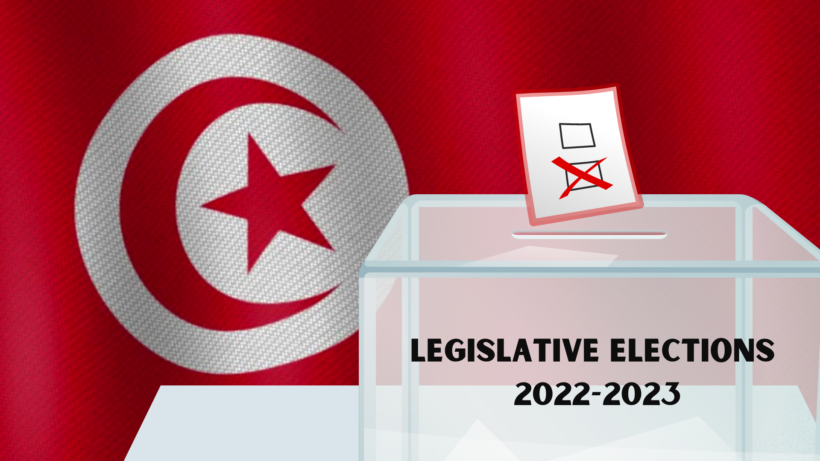The first round of legislative elections in Tunisia is over with a voting rate of 11.2%; around 1 million people out of the 9 million registered voters. This was the lowest voter turnout in the country’s history.
What was supposed to be a turning point for people in the country, ended up revealing a larger issue that could explain this small number of voters. Did people actually boycott the elections as demanded by the parties that were present in the previous parliament? Or, did people lose hope in the parliament altogether?
It is worth noting that the number of voters that was revealed by the High Independent Authority for Elections in Tunisia (ISIE) on the day of the elections was 8.8%. That number increased 2 days later to reach 11.22%.
النسبة النهائية للاقبال على التصويت للانتخابات التشريعية 2022 🇹🇳🗳#TnLeg22 pic.twitter.com/9zTH259Bs3
— ISIE (@ISIETN) December 19, 2022
Whether it is 8% or 11%, the voting rate remains low compared to any elections that the country had. What was also noticeable was that young people voted the least in these elections, even though they were the ones who went to the streets last year and called for a change in the political image in the country due to various political and economic issues.
نسبة الاقبال على التصويت للانتخابات التشريعية 2022 🇹🇳🗳 إلى حدود الساعة 18:00#TnLeg22 pic.twitter.com/qPD5jz56pJ
— ISIE (@ISIETN) December 17, 2022
When talking to a few Tunisian young people, the answers to these questions became clearer. Before the elections, I asked 27-year-old Sinda about who she was planning on voting for. Her answer was that she was not planning on voting in the first place “because all the governments and parliaments so far have not done anything we requested”. She also added “we’ve been having elections over and over again; yet in vain. What’s the point if there is no one worth voting for”.
The same attitude was also affirmed by Tesnim, a 25-year-old student, who admitted that she “has lost faith in the legislative branch for a while now” and that she did not even know who the candidates were.
Other young people were also asked about the elections and all of them disclosed that they didn’t vote because they no longer trust the parliament and lost interest in politics altogether.
Some of them mentioned that they “did not vote after hearing from people how bad the profiles of some candidates are” or that they no longer trust politicians due to the previous experience that we had.
Houyem, a young professional, was one of the people who did not vote in the first round of elections, because “as citizens, we lost trust in the government and whomever wanting to run for office because of the continuous disappointment and the uncertainty of whether any candidate is actually a good person with good intentions or not”. Houyem also stated that “the country has been through so much, and people who want to hold government positions are usually not trustworthy. They only want to gain money and power. We need a radical change; and since this president’s term is about to end, I will vote in the next presidential elections”.
Tunisia has been going through political unrest and worsening economic conditions made worse by COVID-19 and by the previous governments that failed to tackle these issues. This situation left its impact on Tunisian people who started becoming disinterested in politics and untrusting of politicians.
Nevertheless, this was not the explanation provided by the representative of ISIE. At a conference held on the day of the elections, he claimed that what explains the low voter turnout is the new electoral law that prohibits political parties from getting any foreign financial support to fund their campaigns. He also added that “this is the first time that Tunisia had clean elections with no political finance”; as reported by Africa News.
A few days later, after announcing the results of the elections, ISIE posted a statement where they removed partial or entire votes of certain candidates because of some transgressions that were noted. Some candidates either broke the electoral silence or manipulated the results by influencing people through illegal means into voting for them.
Rather than boycotting the elections, young people deemed this election pointless and are not expecting any clear-cut change from the past. People are more concerned about the presidential elections in 2024 than about who to elect for this parliament.
For Tunisia’s political and economic situation to get better and for people to restore their trust in any political change, Houyem suggested “we need to tackle the problem from its roots; not just scratch the surface”.
The second round of elections is expected to happen by the end of January, but the voter turnout is still expected to be low. That raises the question of whether this parliamentary election is the right thing to do at this time or not.










